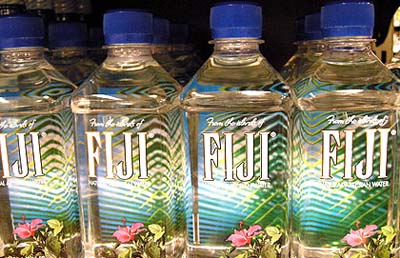
Newspaper of the Year – The Fiji Times: This is the second year running it has won the Café Pacific newspaper prize. Although The Fiji Times went off the boil under Netani Rika’s leadership and headed for a disastrous demise with it uncomprising but unrealistic stance when dealing with a military regime, the newspaper wins the award again - this time for its change of ownership, change of tactics and a realistic overhaul of its strategic direction. Under the naïve management in the last stages of the News Ltd era, the 141-year-old newspaper was heading for closure under the 10 percent local ownership ultimatum under the regime’s Media Industry Development Decree. This fate would have sealed the end of any credible fightback for an independent media in Fiji.
However, under the new ownership of the Motibhai group (“Mac” Motibhai Patel was a Fiji Times director for about four decades) and with the recall of a previous outstanding Australian publisher, Dallas Swinstead, to the hotseat, the paper now has the chance to fight another day. Neogotiation rather than confrontation seems to be the new approach under editor Fred Wesley. Time will tell whether this succeeds.
But paradoxically The Fiji Times also blots its copy book with the Most Toadying Story of the Year – a front page story on Fiji Water that ran as a sort of advertising wrap around. When the US-based company Fiji Water announced its closure this was a petulant response to a massive tax clampdown on the company, many breathed an “about time” sigh – they regarded the company as having exploiting Fiji for years. While some in the media fraternity expected the regime to cave in – as it had done on a previous attempt to boost the state tax returns - this time it was the company that surrendered with a reversal of its close down edict and a vow of business as usual. The Fiji Times needed to have published a more exhaustive inquiry into the economics of Fiji Water and also ought to have a higher level of scrutiny of other foreign-owned companies operating in the country. This is revelatory about the level of business journalism on the paper at the moment.
Media film – There Once Was an Island: Te Henua e Noho: Strictly speaking, this isn’t a media film at all, but a powerful and heart-rending documentary about the realities of climate change in the Pacific, a film that every journalist working on environmental issues should watch. It is extremely educational about the power relationships between politicians in far-away Pacific capitals and their incompetent functionaries and island communities struggling for survival on remote islands with the political odds stacked against them. Filmmaker Briar March lived with the community on the Polynesian atoll of Takuu (also known as the Mortlock islands) as they wrestled with their life-and-death decisions over a move to the Bougainville autonomous region mainland some 250 km to the south-west.
This film had its premier in the New Zealand International Film Festival in July and was also screened at the Oceans, Islands and Skies creativity and climate change conference at the University of the South Pacific in September. Sadly, not one local Fiji journalist took the trouble of seeing it, let alone write about it. It has already won four awards in 2010 and was the runner-up as the best political film for the AOF Festival 2010.
Media monitoring agency – Reporters sans frontières (RSF): Again, this award is well-deserved globally for 2010, but the agency is also now boosting its Asia-Pacific coverage with several new nations now being included in its Pacific section of the annual media freedom survey. Its coverage of East Timor and Papua New Guinea is particularly welcome. According to RSF's 2010 end-of-year report:
57 journalists killed (25 percent fewer than in 2009)
51 journalists kidnapped
535 journalists arrested
1374 physically attacked or threatened
504 media censored
127 journalists fled their country
152 bloggers and netizens arrested
52 physically attacked
62 countries affected by internet censorship
Check out the full report.
Independent new website - Taimi Media Network Online: This new website is a hybrid offering from both the feisty independent newspaper Taimi ‘o Tonga and the government-owned Tonga Chronicle and TMN-Television 2. Congratulations to Kalafi Moala and his team. This could not be better timed as the momentous post-election changes are settling down in Tonga. Scrutiny is needed now more than ever.
Also, a special mention of the Pacific Media Centre’s new revamped regional website: www.pmc.aut.ac.nz – unlike some of the regional media websites, this is genuinely independent and carries no vested interests baggage.
Last year's Café Pacific New Year awards
Note: Go to Café Pacific's original page to check all the additional links and sidebars in this article.



